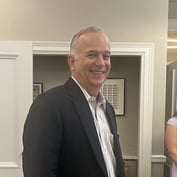A long term care finance expert is suggesting that insurers develop a new type of instrument to help finance long-term institutional care.[@@]
Stephen Moses, president of the Center for Long-Term Care Insurance Reform Inc., Seattle, says his idea is based on the concept of the reverse mortgage, a tool that has long been used to pay for home-based care.
A reverse mortgage gives a homeowner the ability to use home equity to pay bills, including home health care bills. The homeowner does not have to make payments while living in the home, but the reverse mortgage normally become due and payable within a year after the homeowner dies or moves out of the home.
Because a homeowner must stay in the home to use a reverse mortgage, “RMs are not much help with assisted living or nursing home expenses,” Moses writes in his organization’s newsletter.
He proposes that LTC carriers offer a new type of reverse mortgage that does not force homeowners to sell their home when they move into a nursing home or assisted-living facility.








 June 03, 2005 at 08:00 PM
June 03, 2005 at 08:00 PM










